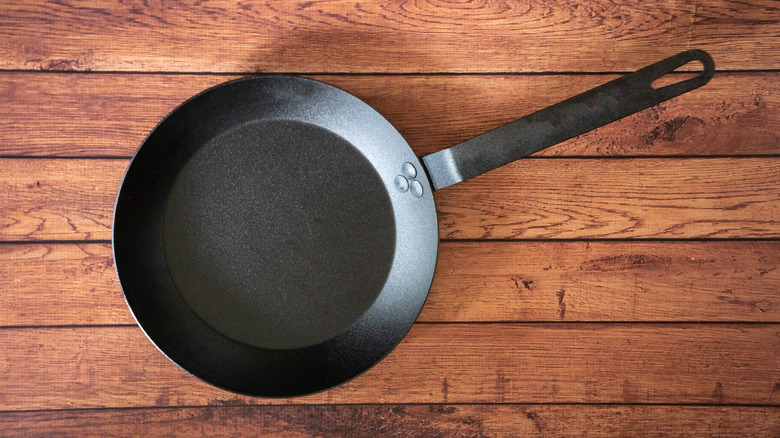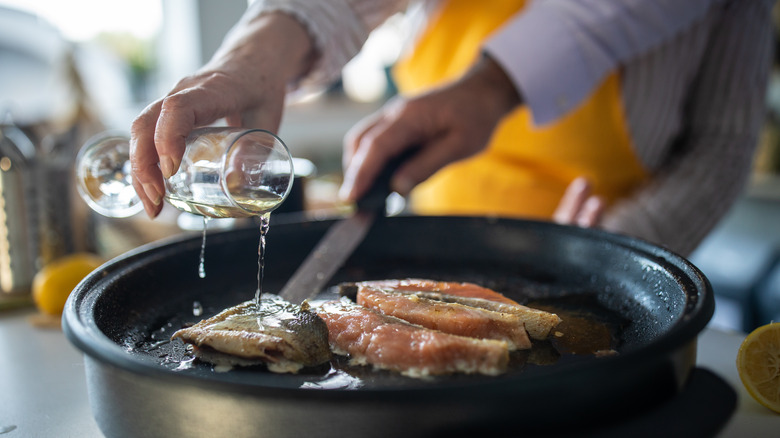White Wine And Your Carbon Steel Pans Don't Mix. Here's Why
We may receive a commission on purchases made from links.
Before you begin researching the best white wines for cooking, it might be wise to check your pans. A splash of vino goes a long way, accelerating the release of flavor molecules and balancing the overall taste profile of dishes. But did you know that white wine can also strip the seasoning from your carbon steel pans? This can be catastrophic for your cooking, encouraging ingredients to stick to the surface (nobody wants to waste precious fish fillets in this economy) and sometimes imparting a metallic taste to your food. It might even wreck your pan in the long run with premature rusting.
One of the best tips for cooking with wine is to evaluate your cooking utensils before you begin. It's important to understand precisely what pan seasoning is and how to spot whether yours is being worn down. A quick glance should be enough: Is the shiny base of baked-on oil intact? If not, you can scrub it with a vinegar and water combination to remove the remaining layer, pop a couple of drops of oil in, and blast it with heat. Just be sure to put those troublesome carbon steel pans away afterward — they are not the combination you want for your wine-based concoction.
Which pans are safe to use with wine?
There are so many ways to use white wine in your cooking alone, so don't even get us started on the recipes available for other wine types. With that many dishes at your fingertips, you need to know which pans are up for the challenge. In general, stainless steel, glass, or ceramic pots and pans perform better under acidic conditions. Stainless steel and ceramic equipment are especially great for wine as they don't require seasoning.
While carbon steel is a no-go for acidic ingredients, cast iron can also be problematic. It's possible to allow both to recover by cooking high-fat dishes between wine sessions, but neither is particularly well suited to such high-intensity acidic simmering. You'll be giving yourself plenty of maintenance work, plus it demands regular re-seasoning and will gradually chip away at the pan's lifespan.
Learning how acidic foods can affect your cast iron pan is something worth looking into. And if you do plan to use one, here's how often you should re-season a cast iron pan. Stock up on products like the Cast Iron Sam's 100% Natural Cast Iron Seasoning Oil or the Culina Cast Iron Seasoning Stick; you'll need to be proactive with upkeep.

